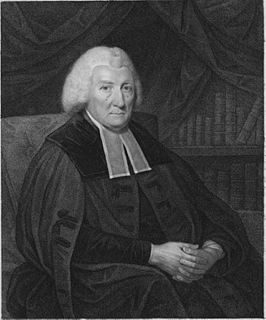A Quote by Hugh Blair
Compassion is an emotion of which we ought never to be ashamed. Graceful, particularly in youth, is the tear of sympathy, and the heart that melts at the tale of woe. We should not permit ease and indulgence to contract our affections, and wrap us up in a selfish enjoyment; but we should accustom ourselves to think of the distresses of human, life, of the solitary cottage; the dying parent, and the weeping orphan. Nor ought we ever to sport with pain and distress in any of our amusements, or treat even the meanest insect with wanton cruelty.
Quote Topics
Any
Ashamed
Compassion
Contract
Cottage
Cruelty
Distress
Dying
Ease
Emotion
Enjoyment
Even
Ever
Graceful
Heart
Human
Indulgence
Insect
Life
Meanest
Never
Nor
Orphan
Ought
Our
Ourselves
Pain
Parent
Particularly
Permit
Selfish
Should
Solitary
Sport
Sympathy
Tale
Tear
Think
Treat
Up
Us
Wanton
Weeping
Which
Woe
Wrap
Youth
Related Quotes
I do not believe one can settle how much we ought to give. I am afraid the only safe rule is to give more than we can spare. In other words, if our expenditure on comforts, luxuries, amusements, etc, is up to the standard common among those with the same income as our own, we are probably giving away too little. If our charities do not at all pinch or hamper us, I should say they are too small. There ought to be things we should like to do and cannot do because our charitable expenditure excludes them.
If contemplation of other people's pain just increases distress, then I think we should see it in another way. If we don't center too much on ourselves, then [we] increase our courage and our determination to remedy the pain, not our distress. If we have unconditional compassion, then it increases our courage. So that's the difference, self-centered motivation versus altruistic motivation.
No war ought ever to be undertaken but under circumstances which render all intercourse of courtesy between the combatants impossible. It is a bad thing that men should hate each other; but it is far worse that they should contract the habit of cutting one another's throats without hatred. War is never lenient but where it is wanton; when men are compelled to fight in self-defence, they must hate and avenge: this may be bad; but it is human nature.
We find nothing easier than being wise, patient, superior. We drip with the oil of forbearance and sympathy, we are absurdly just, we forgive everything. For that very reason we ought to discipline ourselves a little; for that very reason we ought to cultivate a little emotion, a little emotional vice, from time to time. It may be hard for us; and among ourselves we may perhaps laugh at the appearance we thus present. But what of that! We no longer have any other mode of self-overcoming available to us: this is our asceticism, our penance.
A kind Providence has placed in our breasts a hatred of the unjust and cruel, in order that we may preserve ourselves from cruelty and injustice. They who bear cruelty, are accomplices in it. The pretended gentleness which excludes that charitable rancour, produces an indifference which is half an approbation. They never will love where they ought to love, who do not hate where they ought to hate.
The persons on whom I have bestowed my dearest love lie deep in their graves; but, although the happiness and delight of my life lie buried there too, I have not made a coffin of my heart, and sealed it up for ever on my best affections. Deep affliction has only made them stronger; it ought, I think, for it should refine our nature.
If we could sufficiently understand the order of the universe, we should find that it exceeds all the desires of the wisest men, and that it is impossible to make it better than it is, not only as a whole and in general but also for ourselves in particular, if we are attached, as we ought to be, to the Author of all, not only as to the architect and efficient cause of our being, but as to our master and to the final cause, which ought to be the whole aim of our will, and which can alone make our happiness.
You need not fear me, for I not only should think it wrong to marry a man that was deficient in sense or in principle, but I should never be tempted to do it; for I could not like him, if he were ever so handsome, and ever so charming, in other respects; I should hate him—despise him—pity him—anything but love him. My affections not only ought to be founded on approbation, but they will and must be so: for, without approving, I cannot love. It is needless to say, I ought to be able to respect and honour the man I marry, as well as love him, for I cannot love him without.
It is our own pain, and our own desire to be free of it, that alerts us to the suffering of the world. It is our personal discovery that pain can be acknowledged, even held lovingly, that enables us to look at the pain around us unflinchingly and feel compassion being born in us. We need to start with ourselves.




































